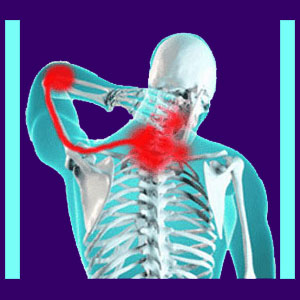
Chronic nerve pain is actually an uncommon syndrome in the spine. This is because the main reason theorized to explain nerve pain, compression, is rarely the actual source. Compressive neuropathies, also commonly known as pinched nerves, are diagnosed far more often than they actually occur. Furthermore, when they do exist, they produce total numbness and weakness over time, not chronic pain.
Although millions of cases of neurological pain are diagnosed every year, the true nature of many of these symptomatic conditions is often misunderstood by the patient and doctor alike. Nerve pain can be ultra-severe and cause the patient to experience nightmarish sensory perceptions and motor deficiencies. In order to resolve these miserable back and neck ache syndromes, it is crucial for the actual cause of the symptoms to be correctly identified, which may be a challenge when it comes to suspected neurological involvement.
This essay takes a detailed look at the facts and misconceptions of chronic nerve pain.
Chronic Nerve Pain Symptoms
Neurological involvement can cause a wide variety of symptoms in the back and other bodily locations. Nerve problems in the cervical region can cause neck pain, facial pain, headaches and pain in the shoulders, as well as related symptoms in these locations. Nerve conditions in the thoracic spine can cause middle or upper back pain, chest pain or abdominal pain, as well as related symptoms in these areas. Lumbar nerve conditions can cause nerve pain in the lower back, groin, legs, feet, hips or buttocks, as well as related symptoms within these zones.
Related symptoms can include objective or subjective versions of weakness or numbness locally or in areas served by the affected nerve. Tingling, also known as pins and needles, may be present. Some patients experience less common painful characteristics, such as a burning sensation.
Chronic Nerve Pain Causes
Spinal abnormalities are most often the scapegoats which are blamed for nerve compression in the spine. A pinched nerve is a very real anatomical possibility, but is unlikely to be the cause of a long lasting pain syndrome, as previously mentioned above.
It is factual that all the following conditions can cause pinched nerves: an atypical spinal curvature, vertebral misalignment, herniated discs, osteoarthritic buildup, spinal stenosis and others. However, in many cases, these conditions do not actually affect the nerve functionality even when they definitively touch or displace the neurological structure.
Some chronic neurological pain conditions stem from psychosomatic regional oxygen deprivation as the primary cause of symptoms. This is an extremely common occurrence in millions of patients which goes mostly undiagnosed as the main causative condition behind the symptoms. Ischemia is a powerful process and is especially brutal upon sensitive nerve fibers. A very small degree of oxygen deprivation will affect nerves substantially. This is a mindbody process which is often responsible for ongoing neurological pain complaints in the spine or anywhere else in the body.
Chronic Debilitating Nerve Pain
I have experienced the horror of ischemia nerve pain myself. I suffered with unbelievable back pain for 18 years, which was blamed on several abnormalities in my spine. Despite the dozens of treatment options I tried, my pain continued and steadily worsened. My life became a living hell of pain, anxiety and worry. I was one of the fortunate few who actually discovered the real reasons why the pain endured for so long. I used this knowledge to enact a cure for my pain.
Unfortunately, most patients never discover the real underlying causation for their pain. Some are never diagnosed, while others hold on to a mistake in the diagnostic process as being factual… all the while pursuing treatment for an innocent condition or irregularity. It happens all the time. They are trapped in an endless cycle of pain, failed treatments and sometimes even disability. It is this sad fact which gives me the motivation to research and write for this website every day.
I can’t stand the injustices suffered by helpless patients while the medical system perpetuates myths about the true nature of back pain. There is help for your pain. However, the way to find it is to become active in your care and learn all you can about your symptoms and the reason why they exist. If you have a diagnosis, learn about it. If not, then research the symptoms. Once you have some knowledge, you will find it ever easier to find effectual treatment and best of all, you will be less likely to fall victim to misdiagnosis.




